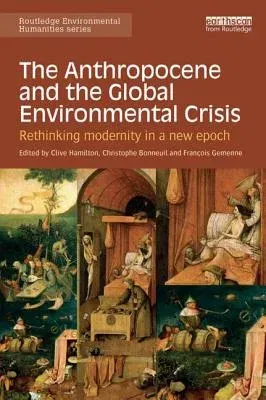The Anthropocene, in which humankind has become a geological force, is a
major scientific proposal; but it also means that the conceptions of the
natural and social worlds on which sociology, political science,
history, law, economics and philosophy rest are called into question.
The Anthropocene and the Global Environmental Crisis captures some of
the radical new thinking prompted by the arrival of the Anthropocene and
opens up the social sciences and humanities to the profound meaning of
the new geological epoch, the 'Age of Humans'. Drawing on the expertise
of world-recognised scholars and thought-provoking intellectuals, the
book explores the challenges and difficult questions posed by the
convergence of geological and human history to the foundational ideas of
modern social science.
If in the Anthropocene humans have become a force of nature, changing
the functioning of the Earth system as volcanism and glacial cycles do,
then it means the end of the idea of nature as no more than the inert
backdrop to the drama of human affairs. It means the end of the
'social-only' understanding of human history and agency. These pillars
of modernity are now destabilised. The scale and pace of the shifts
occurring on Earth are beyond human experience and expose the
anachronisms of 'Holocene thinking'. The book explores what kinds of
narratives are emerging around the scientific idea of the new geological
epoch, and what it means for the 'politics of unsustainability'.

